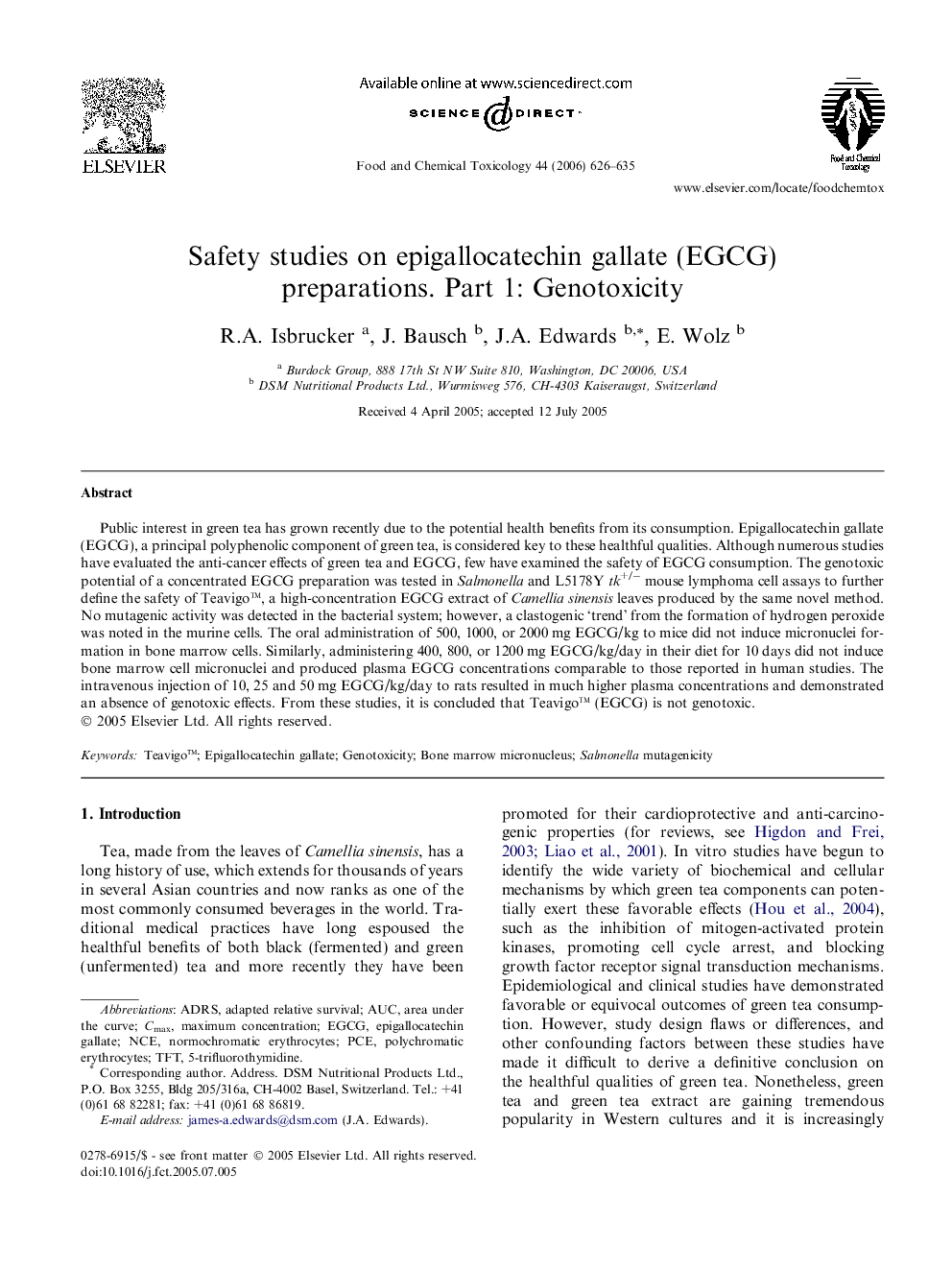| کد مقاله | کد نشریه | سال انتشار | مقاله انگلیسی | نسخه تمام متن |
|---|---|---|---|---|
| 2588129 | 1130952 | 2006 | 10 صفحه PDF | دانلود رایگان |

Public interest in green tea has grown recently due to the potential health benefits from its consumption. Epigallocatechin gallate (EGCG), a principal polyphenolic component of green tea, is considered key to these healthful qualities. Although numerous studies have evaluated the anti-cancer effects of green tea and EGCG, few have examined the safety of EGCG consumption. The genotoxic potential of a concentrated EGCG preparation was tested in Salmonella and L5178Y tk+/− mouse lymphoma cell assays to further define the safety of Teavigo™, a high-concentration EGCG extract of Camellia sinensis leaves produced by the same novel method. No mutagenic activity was detected in the bacterial system; however, a clastogenic ‘trend’ from the formation of hydrogen peroxide was noted in the murine cells. The oral administration of 500, 1000, or 2000 mg EGCG/kg to mice did not induce micronuclei formation in bone marrow cells. Similarly, administering 400, 800, or 1200 mg EGCG/kg/day in their diet for 10 days did not induce bone marrow cell micronuclei and produced plasma EGCG concentrations comparable to those reported in human studies. The intravenous injection of 10, 25 and 50 mg EGCG/kg/day to rats resulted in much higher plasma concentrations and demonstrated an absence of genotoxic effects. From these studies, it is concluded that Teavigo™ (EGCG) is not genotoxic.
Journal: Food and Chemical Toxicology - Volume 44, Issue 5, May 2006, Pages 626–635